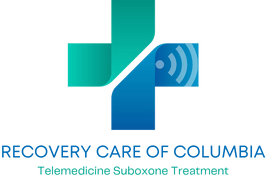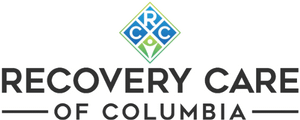Columbia Suboxone Clinic Blog
Kratom Dependence: A Growing Risk in Tennessee

Kratom dependence is a serious issue affecting many people across Tennessee, often hidden under the assumption that kratom is a “natural” and therefore “safe” alternative. The reality is that kratom, like opioids, can create powerful physical dependence and painful withdrawal symptoms. For men and women ages 18–45 facing hardship, family stress, or prior trauma, kratom dependence may feel like just another obstacle in life. But recovery is possible—with the right support, treatment, and care.
At Recovery Care of Columbia, we’ve helped over 1,000 Tennesseans rebuild their lives through Suboxone treatment and counseling, all provided 100% virtually. You’ll never have to step foot in a clinic—we bring compassionate, expert care straight to your phone or tablet.
What is Kratom Dependence?
Kratom is a plant-based substance sold in smoke shops and gas stations, often marketed as a safe pain reliever or energy booster. But kratom acts on the brain’s opioid receptors—similar to heroin, fentanyl, and prescription opioids. Over time, the body adapts, leading to tolerance, dependence, and withdrawal.
Common signs of kratom dependence include:
- Needing larger amounts to feel the same effects
- Feeling anxious, restless, or sick without it
- Spending money you can’t afford on kratom
- Hiding use from family or coworkers
- Struggling to quit on your own
According to the DEA, kratom use has been linked to seizures, hospitalizations, and even death in the United States (DEA findings). Like opioids, quitting suddenly can cause intense withdrawal symptoms that make recovery feel impossible without help.
Kratom Dependence and Opioid Addiction
Many Tennesseans who struggle with kratom have also used prescription opioids, heroin, or fentanyl. In fact, our patients often tell us they turned to kratom when they could no longer afford pills or were trying to avoid opioid withdrawal.
Unfortunately, kratom dependence often leads right back to opioids because the cravings never stop. That’s where Suboxone treatment comes in.
Why Suboxone is Effective for Kratom Dependence
Suboxone works by:
- Reducing withdrawal symptoms – making the transition off kratom painless.
- Blocking cravings – giving you freedom from constantly chasing your next dose.
- Providing stability – so you can focus on your job, family, and recovery.
Combined with counseling, Suboxone is proven to help people stop using opioids and kratom safely. At Recovery Care of Columbia, we call this approach TeleMAT—our trademarked model of telemedicine medication-assisted treatment.
The Benefits of Telemedicine for Addiction Recovery
Life in Tennessee can make treatment difficult—especially if you don’t have reliable transportation or live far from a city like Columbia, Clarksville, Murfreesboro, Jackson, or Franklin. That’s why virtual treatment matters.
With Recovery Care of Columbia, you can:
- Start treatment from your phone—no clinic visits ever.
- Use TennCare Medicaid, commercial insurance, or self-pay options.
- Work with master’s-level counselors who understand trauma and recovery.
- Trust an accredited program—we are proud to be recognized by The Joint Commission.
- Get support from people who care—our staff and owners are in recovery themselves.
Why Choose Recovery Care of Columbia?
We know what it’s like to be treated poorly while seeking help. That’s why we built the experience patients truly deserve. Here’s what sets us apart:
- First clinic in Tennessee with a virtual medical license for addiction care
- More than 1,000 patients treated across Tennessee
- 100+ five-star Google reviews (see reviews)
- Friendly, compassionate staff who are passionate about helping others (meet our team)
- Accredited by The Joint Commission for excellence in healthcare
How to Get Started Today
Whether you’re struggling with kratom dependence, heroin, fentanyl, or prescription opioids, the first step toward recovery can start today.
👉 Register online:
- Commercial Insurance Patients
- TennCare Medicaid Patients
- Self-Pay Without Insurance
- Register as a returning patient
- Apply for our Sliding-Scale Program
👉 Learn more about insurance and pricing
👉 Or simply text us at (931) 548-3062 to connect with our team.
FAQs About Kratom Dependence and Recovery
Is kratom addictive?
Yes. Kratom acts on the same brain receptors as opioids and can cause dependence, withdrawal, and addiction.
Can Suboxone help with kratom dependence?
Yes. Suboxone can ease kratom withdrawal and block cravings, giving you the stability you need to recover.
Will I have to go to a clinic?
No. Recovery Care of Columbia is 100% virtual—you’ll meet with providers and counselors through your phone.
Does insurance cover treatment?
Yes. We accept TennCare Medicaid, commercial insurance, and offer self-pay options.
What if I’m ashamed or hiding my addiction?
You are not alone. Many of our patients were afraid to reach out at first, but treatment is confidential and judgment-free.
Kratom Dependence and the Risk of Overdose
While many people think kratom is safer than opioids, the truth is that dependence can spiral quickly. Combined with opioids or other substances, kratom use can increase the risk of overdose and even death. If you or a loved one is struggling, don’t wait. Recovery is possible, and help is available today.
Related Articles
- Kratom & 7-OH Addiction: Causes, Risks, and How Suboxone Treatment Can Help
- Kratom Withdrawal: Safe Treatment Options in Tennessee
- Addiction Treatment TennCare: Virtual Recovery Options in Tennessee
- Kratom Withdrawal Treatment: Safe, Effective Options in Tennessee
External Resources
- DEA – Drugs of Concern: Kratom
- Substance Abuse and Mental Health Services Administration (SAMHSA)
- National Center on Substance Abuse and Child Welfare
- Centers for Disease Control and Prevention | CDC.gov
- Locate a Peer Recovery Support Specialist
- National Institute on Drug Abuse
- Tennessee Department of Health Drug Overdose Dashboard



